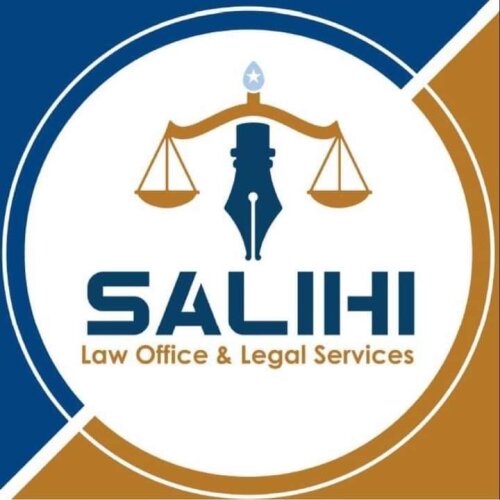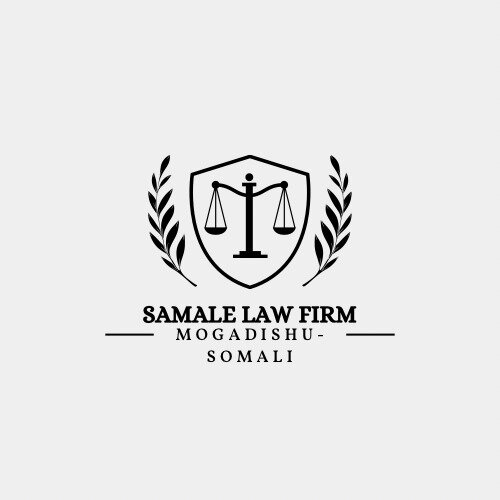Best Mining Law Lawyers in Somalia
Share your needs with us, get contacted by law firms.
Free. Takes 2 min.
Or refine your search by selecting a city:
List of the best lawyers in Somalia
About Mining Law in Somalia
Mining Law in Somalia governs the exploration, extraction, and management of mineral resources within the country. As a developing sector, Somalia’s mining laws aim to attract investment, encourage sustainable development, and ensure that mining activities comply with environmental and social standards. The legal framework sets out the rights and responsibilities of government authorities, investors, landowners, and local communities when it comes to prospecting, mining, and exporting minerals.
Why You May Need a Lawyer
There are various scenarios where legal advice or representation may be necessary in the field of Mining Law in Somalia. If you are a business seeking a mining license, facing disputes over land rights, or entering joint ventures with local partners, a lawyer can help you understand complex regulations and avoid costly mistakes. Individuals and communities may need legal assistance if their land is being considered for mining projects, or to ensure fair compensation and environmental protection. Additionally, lawyers can be indispensable when negotiating contracts, resolving disputes, or addressing potential violations of mining regulations.
Local Laws Overview
Somalia’s mining sector is primarily regulated by the Mining Code and supporting regulations issued by relevant governmental authorities. Here are some key aspects of local laws relevant to mining:
- Licensing and Permitting: Mining operations require different types of licenses for exploration, prospecting, and extraction. Authorities evaluate applications based on technical and financial capabilities as well as environmental impacts.
- Land Use and Ownership: Laws outline who can hold mining rights and how landowners or communities are to be consulted or compensated if their land is involved in mining activities.
- Environmental Regulations: Mining projects must comply with national environmental protection standards, including assessments and mitigation measures for potential impacts.
- Foreign Investment: There are provisions for foreign entities wishing to invest in the mining sector, including requirements for local partnerships or content.
- Revenue Sharing and Taxes: The law details how revenues from mining are shared among the government, local authorities, and affected communities, as well as applicable taxes and royalties.
- Dispute Resolution: Mechanisms exist for resolving conflicts that may arise between mining companies, local communities, and regulatory bodies.
Frequently Asked Questions
What minerals can be legally mined in Somalia?
Somalia allows mining of a range of minerals, including gold, gemstones, gypsum, salt, and other industrial minerals, subject to government approval and licensing requirements.
How is a mining license obtained in Somalia?
Applicants must submit a detailed application, including technical and financial plans, to the relevant ministry or regional authority. Licenses are granted after assessment of the company’s capacity and impact studies.
Are foreign companies allowed to invest in Somalia’s mining sector?
Yes, foreign companies are permitted but must comply with local investment regulations, may be required to enter partnerships with Somali entities, and follow rules regarding profit repatriation and reporting.
What are the obligations of mining companies toward local communities?
Mining companies must consult with local communities, provide fair compensation for land use, implement social development programs, and ensure minimal disruption to livelihoods and the environment.
Is environmental approval mandatory for mining projects?
Yes, an Environmental Impact Assessment (EIA) is required before a mining license is granted. Companies must also adhere to ongoing environmental monitoring and reporting.
How are mining disputes resolved in Somalia?
Disputes involving mining operations are typically resolved through negotiation, mediation, or administrative tribunals. In some cases, disputes may be taken to Somali courts or, with agreement, international arbitration.
What taxes and royalties do mining companies pay?
Mining companies are subject to taxes on income and profits as well as royalties on extracted minerals. The rates are defined by law and may differ depending on the type and scale of mining activity.
Can individuals or small groups apply for mining licenses?
Yes, licenses are available for both large companies and small-scale or artisanal miners, though requirements and permitted activities may be different.
What rights do landowners have if minerals are found on their property?
Landowners retain certain rights, including consultation and compensation if mining occurs on their land. The government generally holds ultimate authority over subsoil mineral resources.
How can someone report illegal mining activities?
Illegal mining should be reported to the Ministry of Petroleum and Mineral Resources or the relevant regional authority. Whistleblowers may provide information in person or in writing, often with options for confidentiality.
Additional Resources
For further information or assistance, consider contacting these organizations and bodies:
- Ministry of Petroleum and Mineral Resources - The main government authority overseeing mining regulation, licensing, and policy development.
- Regional Extractive Industry Authorities - In some states, local bodies handle licensing and community engagement.
- Somali Bar Association - For referrals to qualified legal professionals experienced in mining and extractive law.
- NGOs specializing in resource governance, such as Transparency and Accountability organizations, which may offer guidance and support for communities.
- International agencies like the Africa Mining Vision or UNDP that offer technical assistance and policy advice for mining sector development in Somalia.
Next Steps
If you require legal assistance regarding Mining Law in Somalia, consider the following steps:
- Document your issue or project details, gathering any contracts, correspondence, or official notices related to your case.
- Consult with a qualified lawyer who specializes in mining or extractive industry law. They can help assess your situation, explain your rights and obligations, and recommend an appropriate, actionable legal strategy.
- Contact the Ministry of Petroleum and Mineral Resources for clarification on regulatory requirements or to initiate formal applications or complaints.
- If disputes arise, explore amicable solutions such as mediation before pursuing litigation or arbitration, as these may save time and resources.
- Stay informed by following relevant legal developments and announcements from government authorities and credible organizations in the mining sector.
Proper legal guidance can help protect your interests, ensure compliance, and contribute to responsible mining and sustainable development in Somalia.
Lawzana helps you find the best lawyers and law firms in Somalia through a curated and pre-screened list of qualified legal professionals. Our platform offers rankings and detailed profiles of attorneys and law firms, allowing you to compare based on practice areas, including Mining Law, experience, and client feedback.
Each profile includes a description of the firm's areas of practice, client reviews, team members and partners, year of establishment, spoken languages, office locations, contact information, social media presence, and any published articles or resources. Most firms on our platform speak English and are experienced in both local and international legal matters.
Get a quote from top-rated law firms in Somalia — quickly, securely, and without unnecessary hassle.
Disclaimer:
The information provided on this page is for general informational purposes only and does not constitute legal advice. While we strive to ensure the accuracy and relevance of the content, legal information may change over time, and interpretations of the law can vary. You should always consult with a qualified legal professional for advice specific to your situation.
We disclaim all liability for actions taken or not taken based on the content of this page. If you believe any information is incorrect or outdated, please contact us, and we will review and update it where appropriate.
Browse mining law law firms by city in Somalia
Refine your search by selecting a city.










